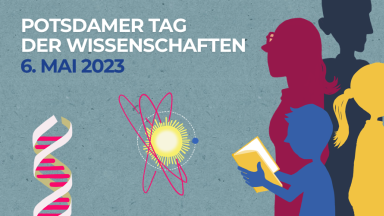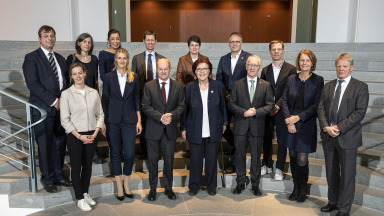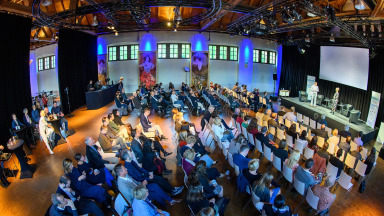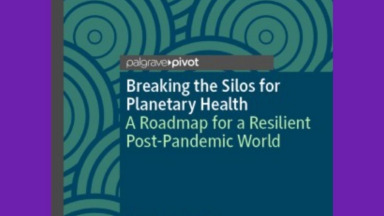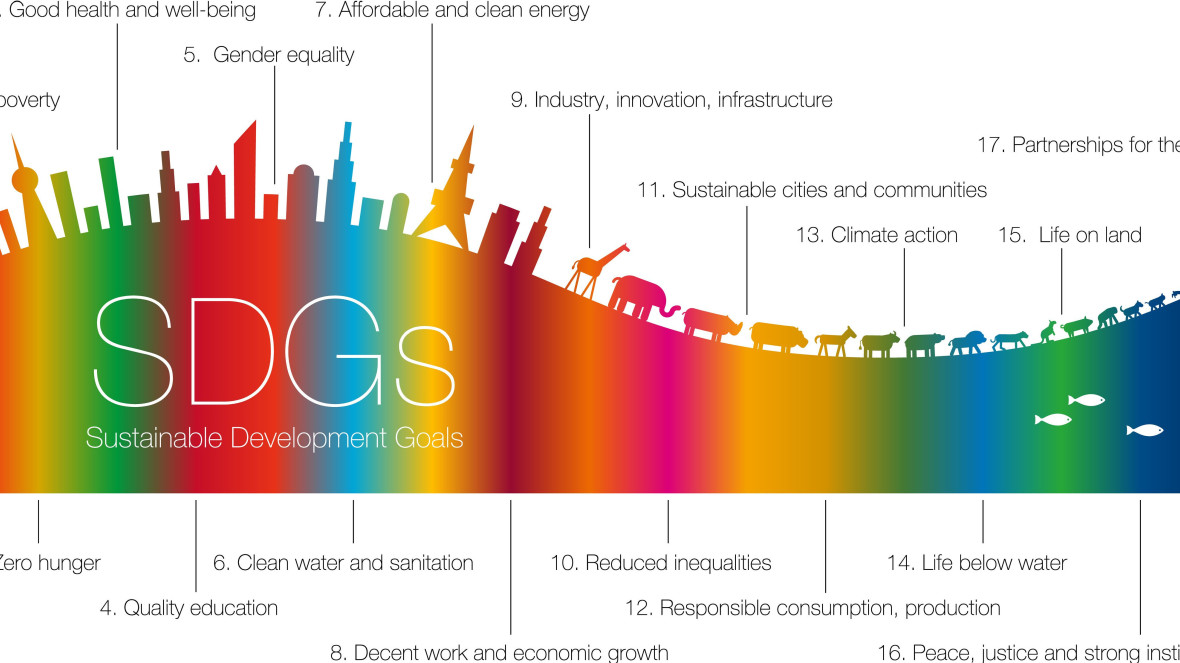The Sustainable Development Goals (SDGs)
25.08.2017
By endorsing the 2030 Agenda for Sustainable Development, the international community signalled its commitment to tackling global challenges through cooperation. The Agenda provides a blueprint for reconciling economic growth with social justice and environmental sustainability.

The 2030 Agenda was adopted by the United Nations General Assembly in September 2015. A milestone in the recent history of the United Nations, it was developed in a broad consultation process with civil society groups across the globe.
The 2030 Agenda applies to every single country in the world. All of them – developing, emerging, and industrial countries – have their part to play in it.
The centrepiece of the Agenda is a catalogue of 17 Sustainable Development Goals (SDGs). The 17 SDGs are the first such goals to give equal priority to all three dimensions of sustainability: social issues, economics, and the environment. The goals are indivisible and mutually reinforcing. They are informed by the five principles (the “five Ps”) of People, Planet, Prosperity, Peace, and Partnership.
The most recent Progress report on the SDGs was presented in 2019 by the Secretary-General of the United Nations, António Guterres.
Germany’s Sustainable Development Strategy
Germany’s National Sustainable Development Strategy was launched by the Federal Government in 2002 and updated in 2016 to ensure its alignment with the UN Sustainable Development Goals. The Strategy describes how the government intends to contribute to achieving the SDGs in, with and through Germany. The most recent update to the Sustainable Development Strategy was adopted in 2021. wpn2030 contributed to this process by providing scientific input and organizing transdisciplinary dialogues.
In the Sustainable Development Strategy, the German government commits itself, among other things, to strengthening its efforts to foster sustainability across all policy areas.
The Strategy identifies six principles for sustainable development:
- Apply sustainable development as a guiding principle across all areas;
- Assume global responsibility;
- Strengthen the natural resource base on which life depends;
- Strengthen sustainable economic activity;
- Preserve and enhance social cohesion in an open society; and
- Use education, science, and innovation as drivers of sustainable development.
A vision for sustainability:
A “sustainable” Germany must be a progressive, innovative, open and liveable country. It is characterised by a high quality of life and effective environmental protection. It is an integrative and inclusive country that excludes no one and that creates opportunities for equal participation in all areas and at all levels. It fulfils its international responsibilities.
And six fields of transformation to promote coherent policy development and action:
- Human well-being and capabilities; social justice
- Energy transitions and climate protection
- Circular economics:
- Sustainable construction and mobility transitions
- Sustainable agriculture and food systems
- Pollution-free environment
To show how the Sustainable Development Strategy contributes to the SDGs, one or more “sustainability postulates” have been formulated for each of the seventeen goals.
For example, the following three postulates pertain to SDG 11 (Sustainable cities and communities): 1. Sustainable land use; 2. Guaranteeing mobility – protecting the environment; and 3. Affordable housing for all.
For each postulate there are one or more targets as well as indicators for tracking progress towards implementation. In the case of the postulate “Affordable housing for all”, for example, the indicator is “Housing cost overload”, and the concrete target is “A decline in the proportion of the population that spends more than 40% of its disposable income on housing to 13% by 2030.”
The current status of the indicators is regularly assessed by the Federal Statistical Office in its Indicator Reports on sustainable development in Germany.
The implementation of the strategy is supported first and foremost by the four bodies responsible for the architecture and functioning of the National Sustainable Development Strategy:
- State Secretaries’ Committee for Sustainable Development
- Parliamentary Advisory Council on Sustainable Development
- German Council for Sustainable Development
- Science Platform Sustainability 2030
The State Secretaries’ Committee on Sustainable Development is the central steering body for the Strategy.
Presided over by the Head of the Federal Chancellery, all departments of the State Secretaries’ Committee were involved in the 2021 update of the strategy. Statements by members of the public gathered in an online consultation process carried out by the federal government’s Press and Information Office in June 2018 also fed into this process. These were supplemented by declarations made at the Sustainability Forum, a gathering of important sustainability actors that is hosted annually by the Federal Chancellery.
Research on the SDGs at RIFS
The Science Platform Sustainability 2030 is a central place for science to continuously reflect on pressing sustainability policy issues with stakeholders from politics, business and society. Knowledge for sustainability is compiled and disseminated there, especially with regard to the implementation of the German Sustainability Strategy.
The platform works independently and is systematically integrated into the official political steering, dialogue and implementation process of the 2030 Agenda in order to be able to act effectively. The platform is open to all stakeholders who want to strengthen sustainability policy through science.
The Brandenburg Sustainability Platform is a communication forum and network for the diverse sustainability initiatives in the state of Brandenburg, funded by the Ministry of Agriculture, Environment and Climate Protection. The office is located at RIFS. Regional initiatives can register and network with each other in order to jointly advance sustainable development in Brandenburg. Through exchange with the initiatives, it is possible to identify concrete opportunities and challenges faced by local people and to communicate these concerns to municipalities and the state government.
From 2018 to 2021, the Global Sustainability Strategy Forum (GSSF) brought together renowned sustainable development experts and thought leaders from business, politics, and civil society from around the world in a series of week-long workshops. It contributed to research on the implementation of the SDGs.
Translated with www.DeepL.com/Translator (free version)













